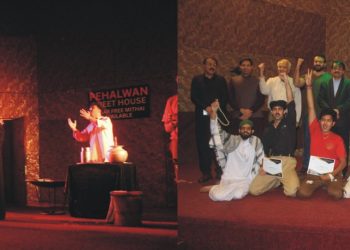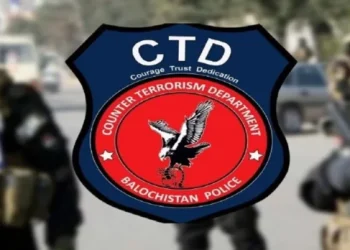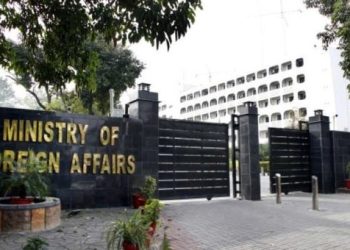RAWALPINDI: In a far-reaching probe, authorities have uncovered a wide-ranging corruption scandal involving the transfer postings of bureaucrats in Rawalpindi. The investigations have revealed the embezzlement of billions of rupees, shedding light on a network of bribery and illicit activities within the Excise Department. The anti-corruption establishment has swiftly taken action, initiating a crackdown on officers implicated in the scandal.
Anti-corruption authorities have launched an extensive investigation into the transfer postings within the Excise Department, revealing a staggering amount of corruption amounting to billions of rupees. The focus of the probe revolves around the practice of offering lucrative postings in exchange for bribes.
Leading the investigations, the anti-corruption agency has targeted officers within the Excise Department, specifically those responsible for facilitating the illicit deals. The crackdown was initiated after compelling evidence was found against the Additional Tax Officers (ATOs) who played a key role in arranging these favorable postings.
One of the central figures in the scandal is Farah Gogi, who facilitated bribes for securing desirable postings. The authorities have collected substantial evidence against the ATOs, who were instrumental in the process. Masood Bashir Warraich, a former ATO, has been implicated in collecting bribes on behalf of Farah Gogi, often utilizing intermediaries connected to Farnandez Mainz.
Further investigation has revealed the existence of a network established by Masood Bashir Warraich, involving inspectors within the Excise Department. This network was reportedly utilized to facilitate corrupt activities and ensure the smooth execution of illicit transactions.
According to anti-corruption sources, Masood Bashir Warraich’s modus operandi involved collecting bribes from liquor shops and delivering them to Farah Gogi. Both Lahore and Rawalpindi were hotspots for these illicit activities, with Masood Bashir Warraich routinely amassing large sums of money on a monthly basis from various liquor shops.
The probe has also uncovered instances where Excise Inspectors, influenced by bribes, allowed the sale of excessive amounts of alcohol in Kot. The irregularities in granting permits for such sales have raised concerns over the integrity of the department and its susceptibility to corruption.
Furthermore, substantial bribes were received from liquor shops in exchange for surpassing the permissible limits for alcohol sales. The bribes collected from these establishments were reported to be significant.
In a startling revelation, private hotels in Lahore were found to be complicit in the corrupt practices. They were allegedly involved in collecting substantial sums of money on a monthly basis from their associated liquor shops, subsequently delivering the funds to Masood Bashir Warraich.
The anti-corruption authorities have wasted no time in taking action against the individuals involved. Cases have already been filed against five bureaucrats who secured postings through Farah Gogi. The list of implicated individuals includes prominent figures such as former Chief Minister Usman Buzdar, Farah Gogi herself, and Ibrahim Maneka, son of Bushra Bibi.
To prevent potential escape, Masood Bashir Warraich’s name has been placed on the passport control list by the Director-General of Immigration and Passports. However, it has been reported that Masood Warraich managed to evade authorities successfully, fleeing the country on flight EY232 a day prior to the investigations gaining momentum.
The corruption scandal involving transfer postings in Rawalpindi’s bureaucracy has sent shockwaves through the region. The extensive investigations have exposed a deep-rooted network of bribery, implicating high-ranking officials within the Excise Department. The swift action taken by the anti-corruption authorities reflects their commitment to combatting corruption and ensuring accountability within the
1 / 1
government. The uncovering of billions of rupees in corruption highlights the urgent need for reforms and strengthened oversight mechanisms to prevent such abuses of power.
The investigations have revealed the extent to which bribery and illicit activities have infiltrated the transfer postings process within the Excise Department. The involvement of high-ranking officials and intermediaries like Farah Gogi and Masood Bashir Warraich points to a systemic problem that requires comprehensive action.
The collusion of Excise Inspectors and private hotels in facilitating corrupt practices demonstrates the pervasiveness of the problem and the need for a thorough review of the department’s operations. The granting of permits for excessive alcohol sales and the acceptance of significant bribes raise serious concerns about the integrity of the Excise Department and its ability to carry out its responsibilities impartially.
The swift action taken by the anti-corruption establishment in filing cases against implicated individuals, including prominent figures, shows a commitment to accountability and sends a strong message that corruption will not be tolerated. Placing Masood Bashir Warraich on the passport control list is an important step to prevent his escape and ensure that he faces justice for his alleged crimes.
However, the fact that Masood Bashir Warraich managed to flee the country before the investigations gained momentum raises questions about the effectiveness of border controls and highlights the need for improved coordination between law enforcement agencies.
The uncovering of this corruption scandal underscores the importance of strengthening anti-corruption measures, enhancing transparency, and promoting a culture of integrity within the bureaucracy. It also highlights the need for citizens to remain vigilant and report any instances of corruption they encounter.
It is crucial that the government takes decisive action to address the root causes of corruption, implement necessary reforms, and hold accountable those responsible for these illicit activities. Only through a concerted effort to combat corruption can the trust of the public be restored and the foundations of a fair and just society be strengthened.

















